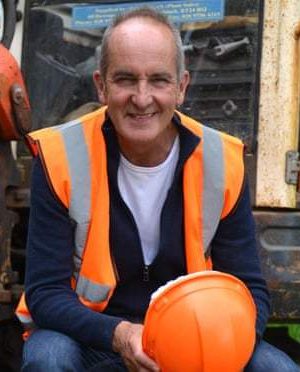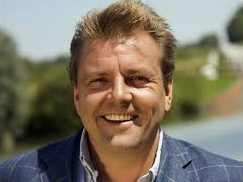HAB (Happiness, Architecture, Beauty), a company co-founded by Grand Designs presenter Kevin McCloud, has told its investors to expect up to 97% losses.
HAB raised a total of £4.3 million from the public in equity shares and unregulated mini-bonds in 2013 and January 2017. A further fundraising in September 2017 aimed to raise up to £50 million; how much this added is unclear.
But it now emerges that small investors who put £2.4m into one of the bonds are on course to lose between 74% and 97% of their money in a worst-case scenario.
Another set of investors, who sank £1.9m in one of the HAB companies in 2013 and were told to expect dividends of at least 5% by the end of 2016, say they have not received a penny and have been “fobbed off”.

McCloud’s HAB Land is the latest of a number of celebrity-endorsed unregulated investment schemes to default on investors. Notable others include Store First, which was endorsed by former Top Gear presenter Quentin Willson.
Then there was Carlauren, which employed Homes Under The Hammer’s Martin Roberts as an “advisor to the board and contributor to sales & marketing content”. Roberts’ involvement was promoted in Carlauren marketing material.
Quentin Willson has stated that he was among the investors who lost money in Store First.

Roberts did not respond to a request for comment. For safety’s sake we can assume he had no involvement in its day-to-day running or its failure to pay investors as promised.
Moving away from the world of TV celebrity into politics, there was MJS Capital, some of whose investors told the Evening Standard that they invested on the assumption that if it was backed by a member of the House of Lords it had to be legit.
HAB Land is slightly different because the celebrity in this case did not just endorse the investment but co-founded it.
There is nothing wrong with celebrities investing in or working for an unregulated investment scheme. But when their involvement is specifically promoted in their marketing material, there is inherently a danger that investors may think “So-And-So wouldn’t back an investment scheme that wasn’t safe”.
This is of course not an assumption that any sophisticated or professional investor would make, but if the endorsement of the celebrity has no effect on investors’ decisions, it is difficult to see why unregulated investment schemes should promote their involvement in their investment literature or go the expense of hiring celebrities in the first place.
It may be too much to ask that celebrities exercise some due diligence when promoting inherently high-risk investment schemes with a risk of 100% loss, considering the people who are at risk of being taken in by “if a celebrity recommends it it must be a good investment”.
So in the meantime, the rule has to be: if you see an investment being promoted by a celebrity, walk away.


Quentin Wilson presented Top Gear along with Clarkson in the 1990s, not before him.
And his surname has two Ls in it
http://www.quentinwillson.co.uk/
Thanks Bluesman and Adam, duly corrected.
Should be renamed un-HAB …
I feel sorry for Kevin McCloud in this instance, he is famous and high profile this is why HAB has received so much coverage. It is a successful scheme but just not a successful money making scheme for investors. I wholly believe Kevin McCloud being the largest creditor as I can also believe he would of provided substantial capital to either the investment scheme or the business.
As again I feel sorry for Kevin this isn’t a typical property scam but its been published in the press as it is.